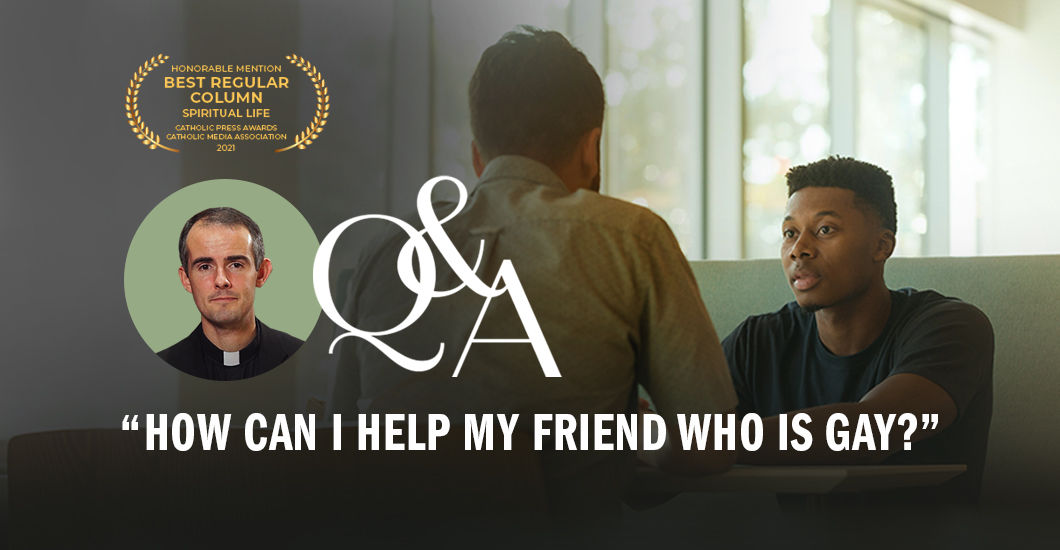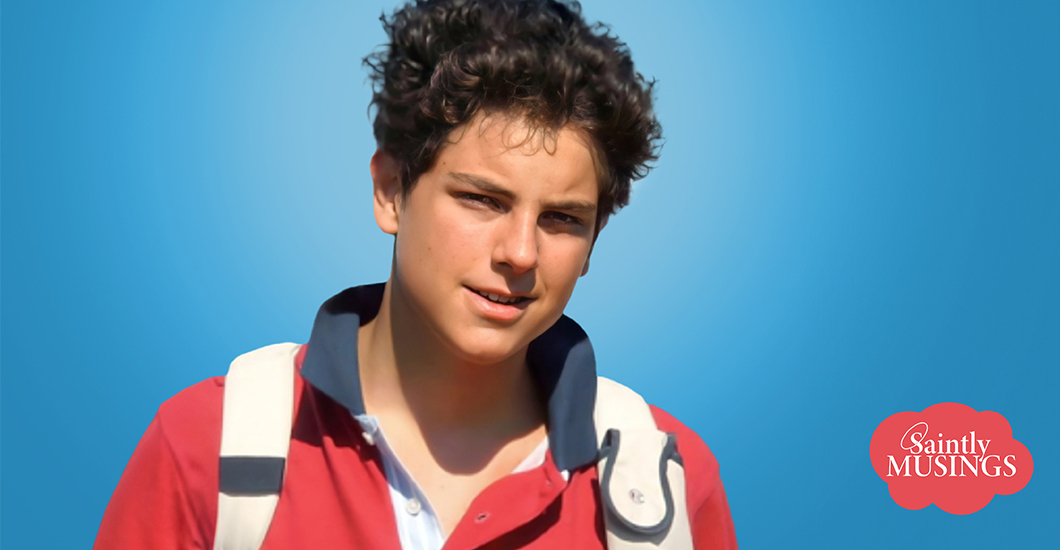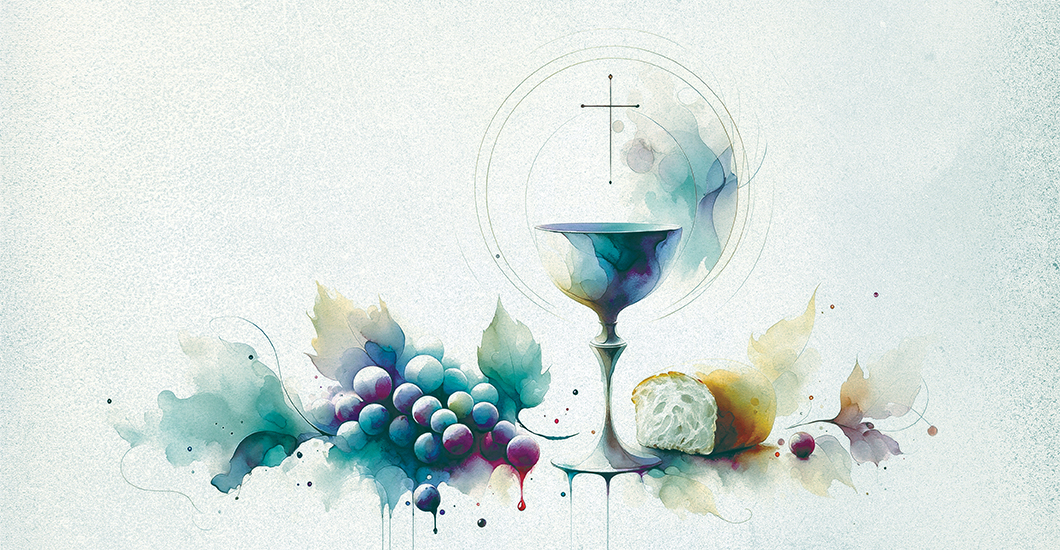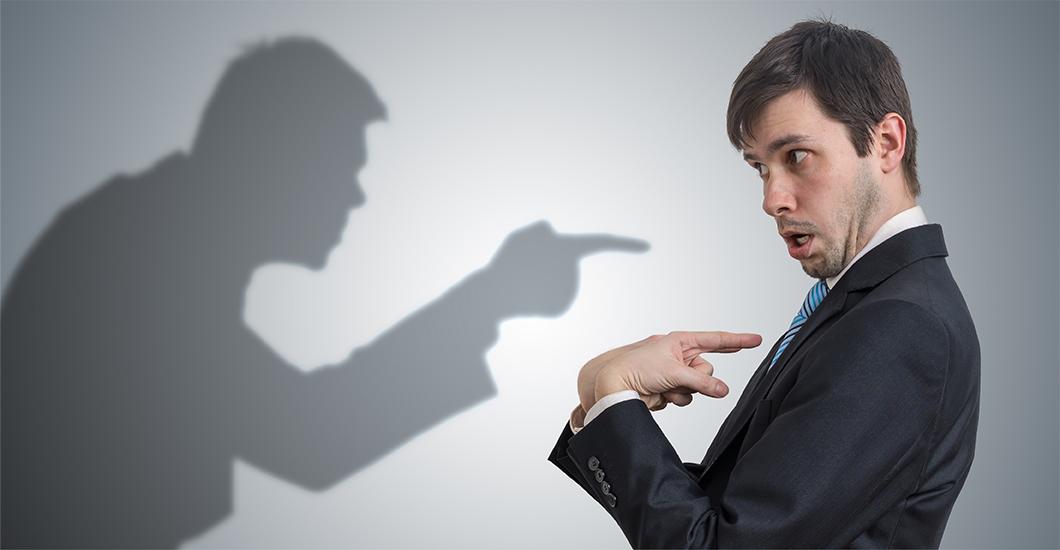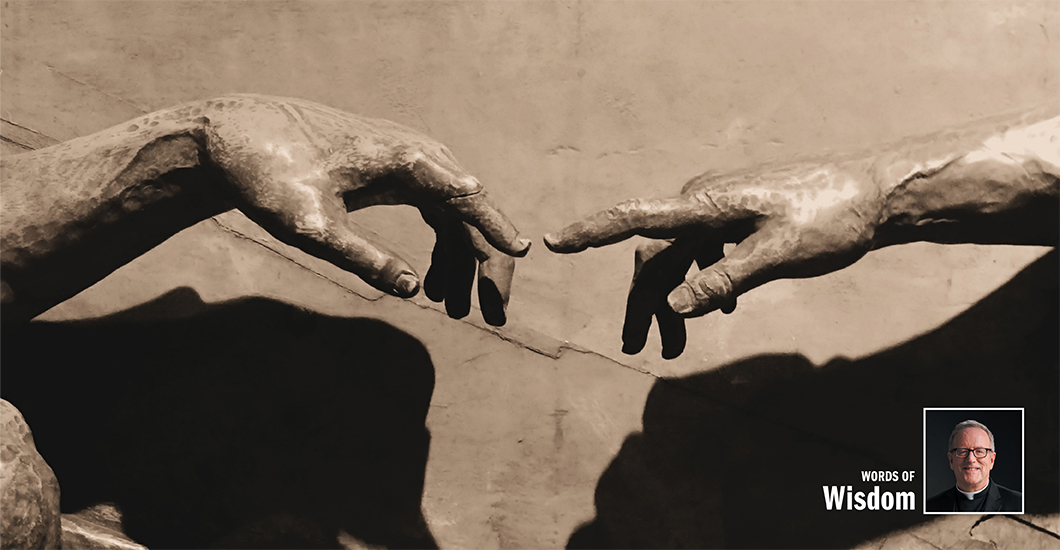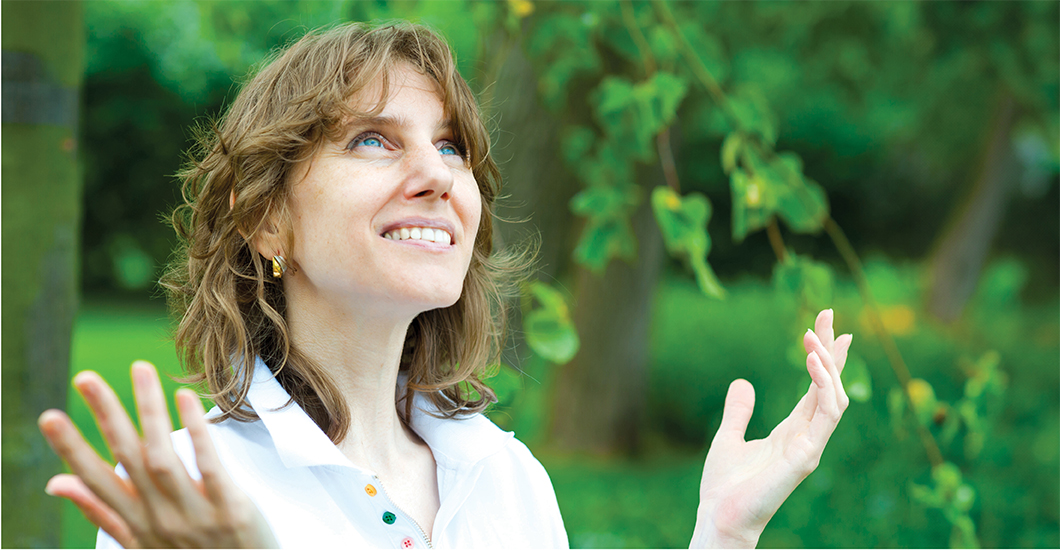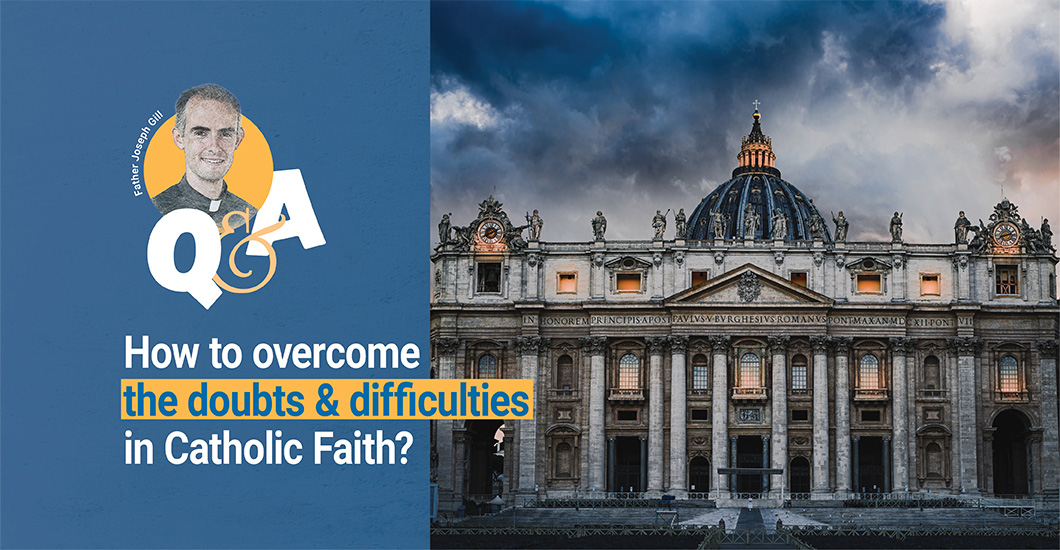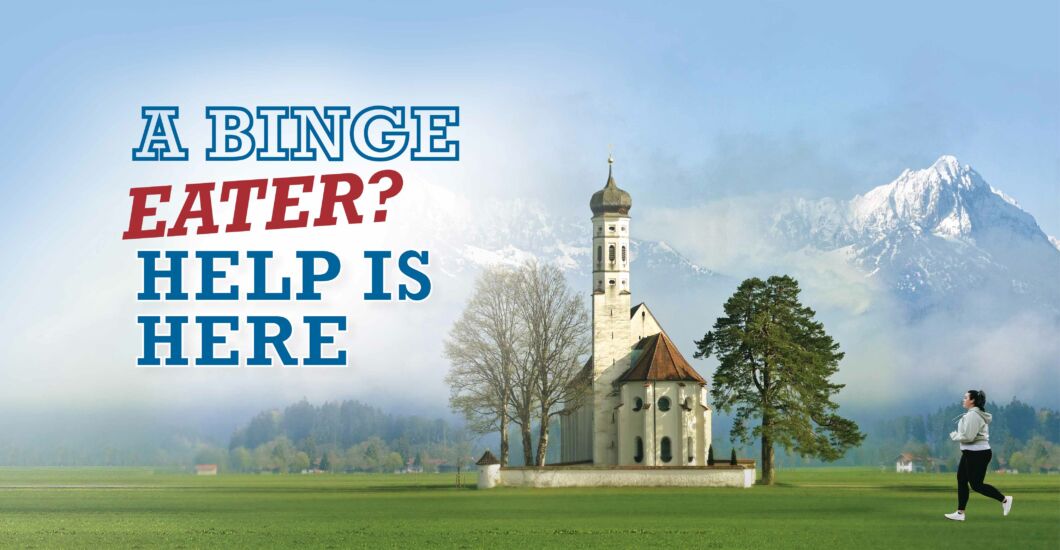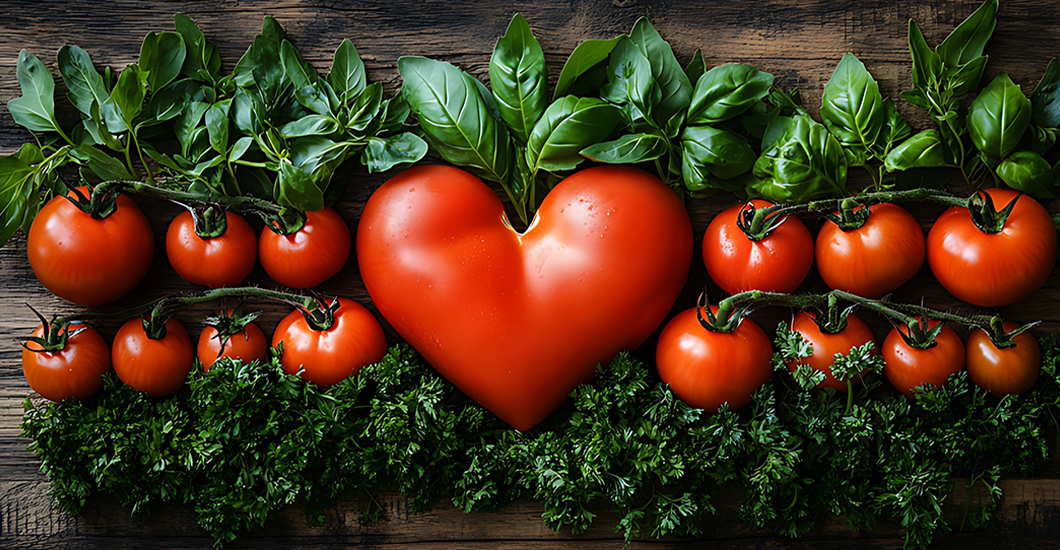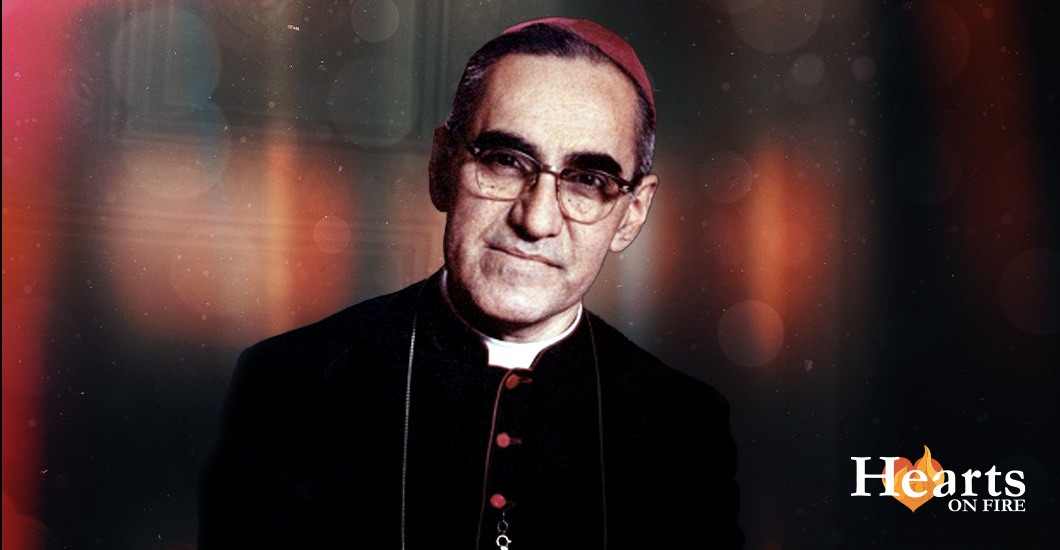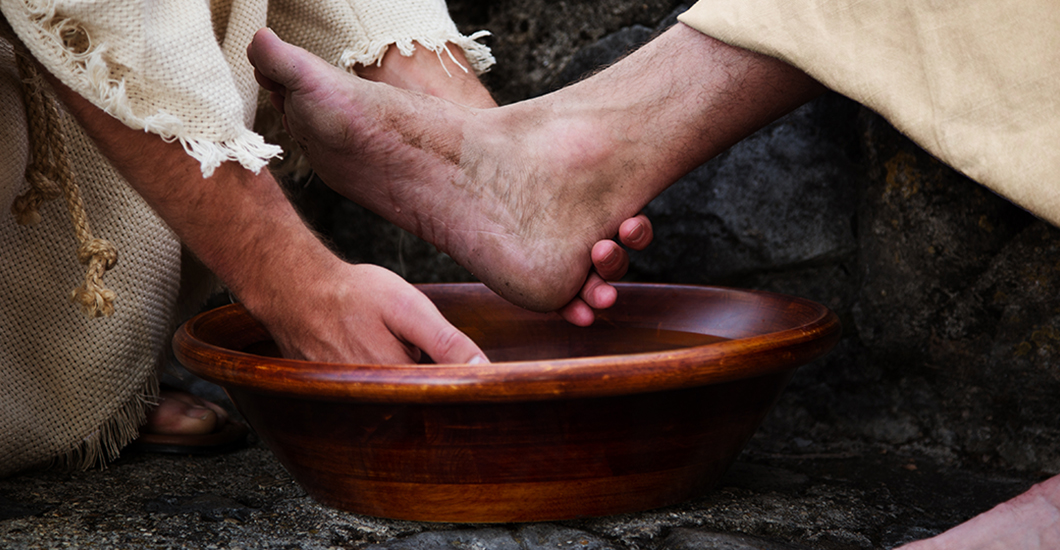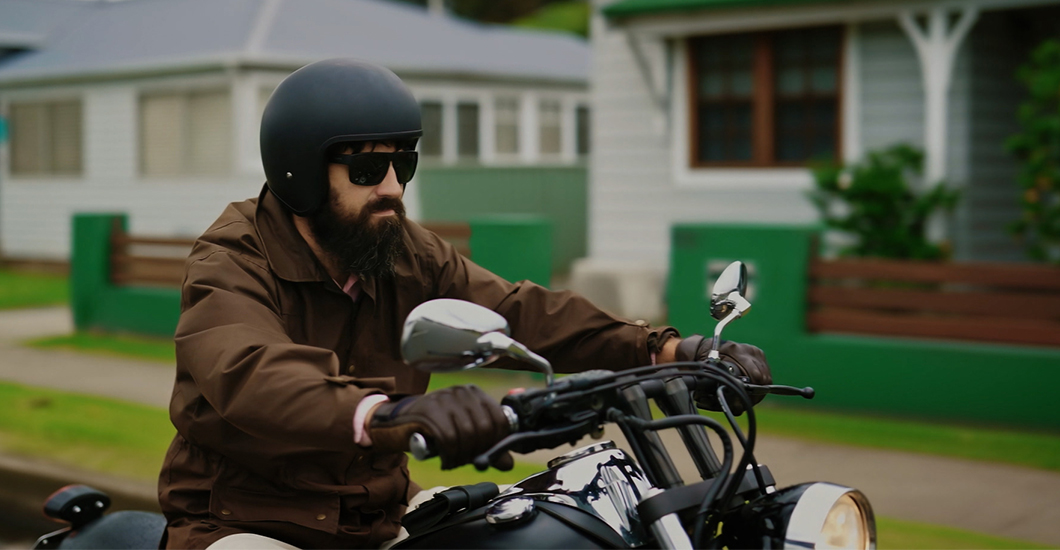Trending Articles
Q & A : How can I help my friend who is a gay?
Question: How can I help my friend, who just came out as a gay man and wants to marry his partner? I want to support my friend but I also want to be true to my Catholic faith.
Answer: This is a question I am frequently asked. Many people have a friend or family member who identifies as gay or lesbian. How should Catholics respond?
The first answer is to love her/him. If someone “comes out” as gay or lesbian, it does not change who she/he is at her/his core. She/He is created in the image and likeness of God. He loved her/him so much, that He suffered and died on the Cross to atone for her/his sins, as well as ours. He invites both of us to share in His redemption. Since God has loved us so much, He entreats us to share that love with our neighbors.
However, as Saint Thomas Aquinas reminds us, love is “willing the good of the other.” We always want the other person’s best interests, and the ultimate best interest is her/his salvation. So, to love her/him truly requires that we act in a way that aids her/his salvation.
How can we do that? First, we pray for her/him. We pray for her/him not as if we were superior— for Jesus had some rather sharp rebukes for the Pharisees who looked down upon others. Rather, we pray for her/him as one sinner for another. As the Protestant pastor D.T. Niles once said, “[Christianity] is about one beggar telling another beggar where to find bread.” We, who have encountered and fallen in love with Jesus—and are seeking to conform our life to His—pray for others that they may find the same healing and mercy that we have received.
Second, we try to put our own lives in order so that our bad example does not cause others to fall into sin. In particular, if we are married we live out our marriages with joy and openness to life. In a world where the evil one loves to attack marriages (since a good and holy marriage is one of the clearest representations of God’s love on Earth), we, as Christians, must fight for the dignity and sanctity of our own marriages. This is a powerful witness to the world, which often sees only distortions of marriage and the cheapening of God’s great gift of sexuality.
Finally, when the time is right, we gently and lovingly share the good news of Jesus, including His good news about sexuality and marriage. The Gospel permeates every aspect of human existence—our friendships, our finances, and even our bedrooms. It is truly good news! We believe that God created sexuality and marriage for two specific purposes (to live out a one-flesh union between a husband and wife and to be open to the gift of life); these purposes are not burdens but pathways to our own happiness! We must share the Church teaching on sexuality and marriage, not as a list of condemnations but as a teaching that authentically fulfills us as human beings made in His image.
It is possible to love the sinner but hate the sin. Jesus did that frequently. When we love the sinner, we pray for her/him to repent, we set an example of a life changed by the Gospel and we speak words of truth to her/him, in love.
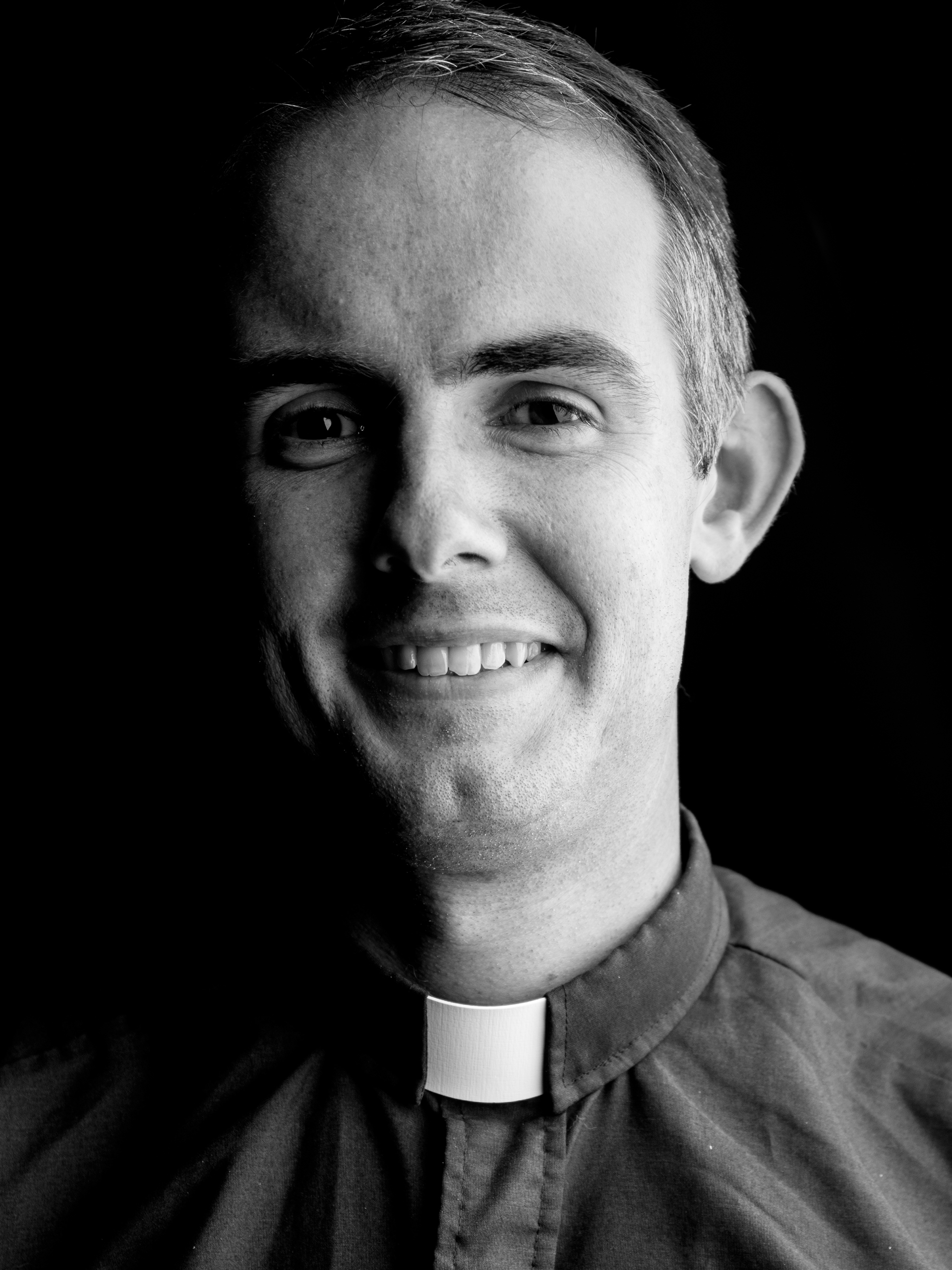
Father Joseph Gill is a high school chaplain and serves in parish ministry. He is a graduate from Franciscan University of Steubenville and Mount St. Mary’s Seminary. Father Gill has published several albums of Christian rock music (available on iTunes). His debut novel, “Days of Grace” is available on amazon.com.
Related Articles
When Andrea Acutis arranged a pilgrimage to Jerusalem, he thought that his son would be excited. Carlo was keen on going to daily Mass and reciting his prayers, so his reply came as a surprise: "I prefer to stay in Milan … Since Jesus remains with us always, in the Consecrated Host, what need is there to make a pilgrimage to Jerusalem to visit the places where He lived 2000 years ago? Instead, tabernacles ought to be visited with the same devotion!" Andrea was struck by this great devotion that his son cherished for the Eucharist. Carlo was born in 1991, the year the World Wide Web was invented. The little genius walked when he was just four months old, and started reading and writing at the age of three. The world would’ve looked at his intellect and dreamt of a bright future but the Divine had different plans. Combining his love for the Eucharist and technology, he left the world a great legacy of a record of Eucharistic miracles from across the world. He began the collection in 2002 when he was just 11 years old and completed it a year before he succumbed to leukemia. This young computer geek, at such a young age, even built a website (carloacutis.com), a lasting record, with all the collected information. The Eucharistic exhibition he pioneered was held in five continents. Ever since, many miracles have been reported. On his website, he has written the lasting mission of his life on Earth: "The more Eucharist we receive, the more we will become like Jesus, so that on this Earth, we will have a foretaste of Heaven." This Italian teenage designer and computer whiz is soon to become Saint Carlo Acutis. Widely known as the first millennial patron of the internet, Blessed Carlo continues to draw millions of youngsters to the love of Jesus in the Eucharist.
By: Shalom Tidings
MoreWhat happens to your soul when you have an unexpected encounter…? I have a fond childhood memory about Eucharistic Adoration which is very dear to my heart. I participated in the rite of exposition and benediction of the Blessed Sacrament as a child, and I was mesmerized by the Eucharistic Jesus in a majestic monstrance with incense rising up towards Him. As the priest worshipped God by swinging the censer, incense rose towards the Eucharist and the whole congregation sang together, “O Sacrament Most Holy, O Sacrament Divine, All praise and all thanksgiving, Be every moment Thine.” I longed to touch the censer myself and gently push it forward so I could cause the incense to rise up to the Lord Jesus. The priest gestured to me not to touch the censer and I turned my attention to the incense smoke that rose up along with my heart and eyes to the Lord God fully present in the Eucharist. This participation in Eucharistic Adoration as a child filled my soul with so much beauty—the smell of the incense, the entire congregation singing in unison, and the vision of the Eucharistic Lord being worshipped—my senses were thoroughly satisfied, leaving me longing for the experience again. Caught Again I admit with much sadness however that several years afterwards, as a teenager—when I had more opportunities—I gave into hesitation and stayed away from Eucharistic Adoration, depriving myself of such great beauty and source of sanctity. My reason for this seems to me very silly now. I thought I had to continuously pray for the entire one hour of Eucharistic Adoration and it seemed like a very long time. How many of us today hesitate to go to Eucharistic Adoration for similar reasons? We sometimes feel stressed, bored, lazy or even afraid about going to Eucharistic Adoration and we deprive ourselves of this great gift. I say, the trick is to just start going and soon you wouldn’t want to stop. Stronger than Ever Life threw its share of struggles and trials at me in my young adulthood; recalling where I had received such comfort, I turned to God for strength and sustenance. One specific way I turned to God is by going to Eucharistic Adoration on First Fridays. I began by sitting silently in the presence of Jesus in the Blessed Sacrament for a whole hour, first, simply allowing myself to be there; and then just talking to the Lord about my life, asking for His help and telling Him that I loved Him. Have you ever thought of the possibility of simply showing up in front of the Eucharistic Jesus and doing nothing but staying in His divine presence for an hour? For me, as years went by, I found that spending time at Eucharistic Adoration has changed my life in profound ways, as I become more and more aware of my deepest identity as a beloved daughter of God. We know that our Lord Jesus is truly and fully present in the Eucharist, His body, blood, soul and divinity. The Eucharist is Jesus Himself. Spending time with the Eucharistic Jesus can cleanse you from your sins and fill you with His great love for you. Let us always be fervent, to spend one hour with our God, who continues to be with us in the Eucharist, to the end of the age. Our personal relationship with our God will develop and become stronger and stronger, the more we spend time with the Lord Jesus in Eucharistic Adoration. I assure you that it will become easier, therefore, do not give in to the initial hesitation and do not be afraid in any way to spend time with our Eucharistic Lord, who is love and mercy itself, goodness and goodness alone.
By: Pavithra Kappen
MoreLoneliness is the new normal worldwide, but not for this family! Read on for this incredible tip on staying connected always. I recently became an empty nester. All five of my children live hours apart from one another, which makes family gatherings few and far between. This is one of the bittersweet consequences of successfully launching your children; they can fly pretty far sometimes. Last Christmas, our whole family had the happy occasion of visiting with each other. At the end of those three joyful days, when it was time for goodbyes, I overheard one sibling say to another: “I’ll see you in the Eucharist.” This is the way. This is how we stay close to one another. We cling to the Eucharist. And Jesus binds us together. We certainly miss one another and wish we had more time together. But God has called us to work in different pastures and to be content with the time we’ve been given. So, in between visits and phone calls, we go to Mass and continue to stay connected. Feeling Alone? Attending the Most Holy Sacrifice of the Mass allows us to enter into a reality that’s not bound by space and time. It’s the stepping out of this world and into a sacred space where Heaven touches Earth in a real way, and we are united with the entire family of God, those worshiping both here on Earth and in Heaven. By partaking in Holy Communion, we find that we indeed are not alone. One of Jesus’ last words to His disciples was: “I am with you always, to the end of the age.” (Matthew 28:20) The Eucharist is the immense gift of His continual Presence with us. Naturally, we miss loved ones who are no longer with us; sometimes, the ache can be quite fierce. It is in those moments that we must cling to the Eucharist. On particularly lonesome days, I make an extra effort to get to Mass a little early and linger a little longer afterward. I intercede for each of my loved ones and receive comfort knowing I am not alone and that I am close to Jesus’ Heart. I pray that each of my loved one’s hearts are also close to Jesus’ Heart, so we can also be together. Jesus promised: “And I, when I am lifted up from the earth, will draw all people to Myself.” (John 12:32) Incredibly Close One of my favorite lines during the Eucharistic Prayer is this: “Humbly we pray that partaking of the body and blood of Christ, we may be gathered into one by the Holy Spirit.” God gathers what once was scattered and draws us into the one body of Christ. The Holy Spirit at Mass has been tasked in a particular way with uniting us. We absolutely need God’s help to be in true communion with others. Have you ever been in the same room with someone, but yet it felt like you were a million miles away? The opposite of that can also be true. Even if we are miles apart, we can feel incredibly close to others. Ultimate Reality Last year, I felt particularly close to my grandmother at her funeral Mass. It was very comforting, for I felt like she was right there with us, especially during the Eucharistic prayer and Holy Communion. My grandmother had a strong devotion to the Eucharist and strove to attend daily Mass for as long as she physically could. I was so grateful for that time of intimacy with her and will always treasure that. This reminds me of another portion of the Eucharistic prayer: “Remember also our brothers and sisters who have fallen asleep in the hope of the resurrection and all who have died in Your mercy: welcome them into the light of Your face. Have mercy on us all, we pray, that with the Blessed Virgin Mary, Mother of God, with Blessed Joseph, Her Spouse, with the Blessed Apostles, and all the Saints who have pleased You throughout the ages, we may merit to be co-heirs to eternal life, and may praise and glorify You through Your Son, Jesus Christ.” While at Mass or Eucharistic Adoration, we are in the Real Presence of our Lord and Savior Jesus Christ. We are also joined by the Saints and Angels in Heaven. One day we will see this reality for ourselves. For now, we believe with the eyes of faith. Let us take courage whenever we feel lonely or are missing a loved one. Jesus’ Loving and Merciful Heart is constantly beating for us and yearning for us to spend time with Him in the Eucharist. This is where we find our peace. This is where our hearts are fed. Like Saint John, let us rest peacefully on the loving breast of Jesus and pray that many others will find their way to His Sacred Eucharistic Heart. Then, we will be truly together.
By: Denise Jasek
MoreOften, it’s easy to find fault with others but much more difficult to trace the real culprit. I discovered a parking ticket stuck on my car's windshield wiper. It was an infringement notice for a $287 fine due to the blocking of a driveway. I became upset, and my mind filled with self-justifying thoughts. I kept thinking: "It was just a few inches! Wasn't the garage closed? It didn't look like it was being used. Someone else was parked in front of my car, blocking most of the driveway. There was no available parking space, so I had to park half a kilometer away from my intended destination." Before the Fall But wait a minute! Why was I making so many excuses? It's clear that I had violated the parking rules, and now, I had to face the consequences. However, it's always been my first instinct to try to defend myself whenever I make a mistake. This habit runs deep within me. I wonder where it originated. Well, it goes back to the Garden of Eden. Yet another excuse? Perhaps, but I tend to believe that the first sin was not disobedience or a lack of trust in God but that of evading accountability. Why? When Adam and Eve fell into the snake's trap, they had never experienced evil or tasted the fruit of knowledge. They only knew God, so how could they recognize that the snake was evil and lying? What even is a lie? Can we expect them to distrust the snake? Weren't they like a six-month-old baby trying to play with a cobra? However, things changed after they ate the forbidden fruit. Their eyes were opened, and they realized they had sinned. Yet when God asked them about it, Adam blamed Eve, and Eve blamed the snake. No wonder we tend to do the same! A Precious Opportunity Awaits Christianity, in a way, is simple. It's about being accountable for our sins. God only asks us to take responsibility for our wrongdoings. When we inevitably fall, the most appropriate action for a Christian is to take full responsibility for the mistake, turn to Jesus, and offer an unconditional apology. Needless to say, taking responsibility also comes with a personal commitment to try our best not to repeat the mistake. Jesus takes on the accountability Himself and resolves it with the Father through the immeasurable value of His Precious Blood. Imagine that someone from your family made a mistake that resulted in a huge financial loss. If you knew that your bank was willing to reimburse the loss upon receiving a statement, would you waste your time blaming each other for the mistake? Are we truly aware of the precious opportunity we have in Christ? Let us not fall into the trap of Satan, who is inclined to blame. Instead, let us make a conscious effort not to point fingers at others but rather run toward Jesus when we stumble.
By: Antony Kalapurackal
MoreSeveral years ago, I participated in the annual meeting of the Academy of Catholic Theology, a group of about fifty theologians dedicated to thinking according to the mind of the Church. Our general topic was the Trinity, and I had been invited to give one of the papers. I chose to focus on the work of Saint Irenaeus, one of the earliest and most important of the fathers of the Church. Irenaeus was born around 125 in the town of Smyrna in Asia Minor. As a young man, he became a disciple of Polycarp who, in turn, had been a student of John the Evangelist. Later in life, Irenaeus journeyed to Rome and eventually to Lyons where he became Bishop after the martyrdom of the previous leader. Irenaeus died around the year 200, most likely as a martyr, though the exact details of his death are lost to history. His theological masterpiece is called Adversus Haereses (Against the Heresies), but it is much more than a refutation of the major objections to Christian faith in his time. It is one of the most impressive expressions of Christian doctrine in the history of the church, easily ranking with the De Trinitate of Saint Augustine and the Summa theologiae of Saint Thomas Aquinas. In my Washington paper, I argued that the master idea in Irenaeus’s theology is that God has no need of anything outside of Himself. I realize that this seems, at first blush, rather discouraging, but if we follow Irenaeus’s lead, we see how, spiritually speaking, it opens up a whole new world. Irenaeus knew all about the pagan gods and goddesses who stood in desperate need of human praise and sacrifice, and he saw that a chief consequence of this theology is that people lived in fear. Since the gods needed us, they were wont to manipulate us to satisfy their desires, and if they were not sufficiently honored, they could (and would) lash out. But the God of the Bible, who is utterly perfect in Himself, has no need of anything at all. Even in His great act of making the universe, He doesn’t require any pre-existing material with which to work; rather (and Irenaeus was the first major Christian theologian to see this), He creates the universe ex nihilo (from nothing). And precisely because He doesn’t need the world, He makes the world in a sheerly generous act of love. Love, as I never tire of repeating, is not primarily a feeling or a sentiment, but instead an act of the will. It is to will the good of the other as other. Well, the God who has no self-interest at all, can only love. From this intuition, the whole theology of Irenaeus flows. God creates the cosmos in an explosion of generosity, giving rise to myriad plants, animals, planets, stars, angels, and human beings, all designed to reflect some aspect of His own splendor. Irenaeus loves to ring the changes on the metaphor of God as artist. Each element of creation is like a color applied to the canvas or a stone in the mosaic, or a note in an overarching harmony. If we can’t appreciate the consonance of the many features of God’s universe, it is only because our minds are too small to take in the Master’s design. And His entire purpose in creating this symphonic order is to allow other realities to participate in His perfection. At the summit of God’s physical creation stands the human being, loved into existence as all things are, but invited to participate even more fully in God’s perfection by loving his Creator in return. The most oft-cited quote from Irenaeus is from the fourth book of the Adversus Haereses, and it runs as follows: “The glory of God is a human being fully alive.” Do you see how this is precisely correlative to the assertion that God needs nothing? The glory of the pagan gods and goddesses was not a human being fully alive, but rather a human being in submission, a human being doing what he’s been commanded to do. But the true God doesn’t play such manipulative games. He finds His joy in willing, in the fullest measure, our good. One of the most beautiful and intriguing of Irenaeus’ ideas is that God functions as a sort of benevolent teacher, gradually educating the human race in the ways of love. He imagined Adam and Eve, not so much as adults endowed with every spiritual and intellectual perfection, but more as children or teenagers, inevitably awkward in their expression of freedom. The long history of salvation is, therefore, God’s patient attempt to train His human creatures to be His friends. All of the covenants, laws, commandments, and rituals of both ancient Israel and the church should be seen in this light: not arbitrary impositions, but the structure that the Father God gives to order His children toward full flourishing. There is much that we can learn from this ancient master of the Christian faith, especially concerning the good news of the God who doesn’t need us!
By: Bishop Robert Barron
MoreWould my life ever return to normal? How can I possibly continue my work? Brooding over these, a terrible solution popped into my head… I was finding life extremely stressful. In my fifth year at college, the onset of bipolar disorder was hindering my efforts to complete my teaching degree. I had no diagnosis yet, but I was plagued with insomnia, and I looked frazzled and unkempt, which impeded my prospects of employment as a teacher. Since I had strong natural tendencies toward perfectionism, I felt so ashamed and feared that I was letting everyone down. I spiraled into anger, despondency, and depression. People were concerned about my decline and tried to help. I was even sent to the hospital by ambulance from the school, but doctors could find nothing wrong except elevated blood pressure. I prayed but found no consolation. Even Easter Mass—my favorite time—didn’t break the vicious cycle. Why wouldn’t Jesus help me? I felt so angry with Him. Finally, I just stopped praying. As this continued, day after day, month after month, I didn’t know what to do. Would my life ever return to normal? It seemed unlikely. As graduation approached, my fear increased. Teaching is a tough job with few breaks, and the students would need me to remain level-headed while dealing with their many needs and providing a good learning environment. How could I possibly do this in my current state? A terrible solution popped into my head: “You should just kill yourself.” Instead of casting off that thought and sending it straight back to hell where it belonged, I let it sit. It seemed like a simple, logical answer to my dilemma. I just wanted to be numb instead of under constant attack. To my utter regret, I chose despair. But, in what I expected to be my last moments, I thought of my family and the type of person I had once been. In genuine remorse, I raised my head to the heavens and said: “I’m so sorry, Jesus. Sorry for everything. Just give me what I deserve.” I thought those would be the last words I would utter in this life. But God had other plans. Listening to the Divine My mother was, by providence, praying the Divine Mercy Chaplet at that very moment. Suddenly, she heard the words loud and clear in her heart “Go find Ellen.” She obediently set aside her rosary beads and found me on the floor of the garage. She caught on quickly, exclaiming in horror: “What are you doing?!” while she pulled me into the house. My parents were heartbroken. There’s no rulebook for times such as these, but they decided to take me to Mass. I was totally broken, and I needed a Savior more than ever before. I longed for a come-to-Jesus moment, but I was convinced that I was the last person in the world He would ever want to see. I wanted to believe that Jesus is my Shepherd and would come after His lost sheep, but it was hard because nothing had changed. I was still consumed by intense self-hatred, oppressed by darkness. It was almost physically painful. During the preparation of the gifts, I broke down in tears. I had not cried for a really long time, but once I started, I couldn’t stop. I was at the end of my own strength, with no idea where to go next. But as I wept, the weight slowly lifted, and I felt myself enfolded in His Divine Mercy. I didn’t deserve it, but He gave me the gift of Himself, and I knew that He loved me the same at my lowest point as much as He loved me at my highest point. In Pursuit of Love In the days to come, I could barely face God, but He kept showing up and pursuing me in the little things. I re-established communication with Jesus with the aid of a Divine Mercy picture in our living room. I tried to talk, mostly complaining about the struggle and then feeling bad about it in light of the recent rescue. Weirdly, I thought I could hear a tender voice whispering: “Did you really think I would leave you to die? I love you. I will never forsake you. I promise to never leave you. All is forgiven. Trust in my mercy.” I wanted to believe this, but I couldn’t trust that it was true. I was growing discouraged at the walls I was erecting, but I kept chatting with Jesus: “How do I learn to trust You?” The answer surprised me. Where do you go when you feel no hope but have to go on living? When you feel totally unlovable, too proud to accept anything yet desperately wanting to be humble? In other words, where do you want to go when you want a full reconciliation with the Father, Son, and Holy Spirit but are too scared and disbelieving of a loving reception to find your way home? The answer is the Blessed Virgin Mary, Mother of God, and Queen of Heaven. While I was learning to trust, my awkward attempts did not displease Jesus. He was calling me closer, closer to His Sacred Heart, through His Blessed Mother. I fell in love with Him and His faithfulness. I could admit everything to Mary. Although I feared that I could not keep my promise to my earthly mother because, on my own, I was still barely mustering the will to live, my mother inspired me to consecrate my life to Mary, trusting that she would help me get through this. I didn’t know much about what that meant, but 33 Days to Morning Glory and Consoling the Heart of Jesus by Father Michael E. Gaitley, MIC, helped me understand. The Blessed Mother is always willing to be our intercessor, and she will never turn down a request from a child wanting to return to Jesus. As I went through the consecration, I resolved never to attempt suicide again with the words: “No matter what happens, I will not quit.” Meanwhile, I started taking long walks on the beach while I talked with God the Father and meditated on the parable of the prodigal son. I tried to put myself in the shoes of the prodigal son, but it took me some time to get close to God the Father. First, I imagined Him at a distance, then walking toward me. Another day, I pictured Him running towards me even though it made Him look ridiculous to His friends and neighbors. Finally, the day came when I could picture myself in the arms of the Father, then being welcomed not just to His home but to my seat at the family table. As I envisaged Him pulling out a chair for me, I was no longer a headstrong young woman but a 10-year-old girl with ridiculous glasses and a bob haircut. When I accepted the Father’s love for me, I became like a little child again, living in the present moment and trusting Him completely. I fell in love with God and His faithfulness. My Good Shepherd has saved me from the prison of fear and anger, continuing to lead me along the safe path and carrying me when I falter. Now, I want to share my story so that everyone can know God’s goodness and love. His Sacred Heart is welling up with tender love and mercy just for you. He wants to love you lavishly, and I encourage you to welcome Him without fear. He will never abandon you or let you down. Step into His light and come home.
By: Ellen Wilson
MoreI lost my iPhone a year ago. At first, it felt like a limb was amputated. I had owned one for thirteen years, and it was like an extension of myself. In the beginning days, I used the “new iPhone” like a phone, but it soon became an alarm clock, a calculator, the news, weather, banking, and much more…and then…it was gone. As I was forced into detox, I had many pressing problems. My shopping lists now needed to be written on paper. An alarm clock was purchased, and a calculator. I missed the daily ‘ping’ of messages and the scramble to open them (and the feeling of being wanted). But I was sensing the peace of not having this little piece of metal dominating my life. I hadn’t realized how demanding and controlling the device was until it was gone. The world didn’t stop. I just had to relearn new-old ways of interacting with the world, like talking to people face to face and making plans for events. I wasn’t in a hurry to replace it. In fact, its demise led to a welcome revolution in my life. I started experimenting with minimal media in my life. No newspapers, magazines, radio, television, or phone. I kept an iPad for work emails, selected YouTube videos on the weekend, and a few independent news pages. It was an experiment but one that has left me feeling calm and peaceful, enabling me to use my time for prayer and Scripture. I could now cling to God more easily, who is “the same, yesterday, and today and forever” (Hebrews 13:8). The First Commandment asks us to “love the Lord your God with all Your heart and mind and soul and love your neighbor as yourself” (Mark 12:30-31). I wonder how we can do that when our mind is on our phones for most of the day! Do we truly love God with our minds? Romans 12:2 says: “Do not conform to the pattern of this world but be transformed by the renewing of your mind.” I challenge you to abstain from the media, even for a little while and even for a little bit. Feel that transforming difference in your life. Only when we give ourselves a break will we be able to love the Lord our God with renewed minds.
By: Jacinta Heley
MoreQ: I disagree with some of the teachings of the Catholic Church. Am I still a good Catholic if I don’t agree with everything? A: The Church is more than just a human institution—it is both human and divine. It does not have any authority on its own to teach anything at all. Rather, the role of the Church is to teach faithfully what Christ taught on earth: to authentically interpret the Scriptures and to hand on the Apostolic Tradition that has come down to us from the Apostles themselves. The word “Tradition” comes from the Latin word “traditio”, meaning “to hand over.” We make the distinction, however, between Tradition (with a Big T) and traditions (with a little t). Tradition (Big T) is the unchanging, everlasting teaching of the Church, which has its roots in the Apostles and Christ. Examples of this include the fact that only wheat bread and grape wine can be used for Holy Eucharist; only men can become priests; certain moral actions are always and everywhere wrong; etc. Little-t traditions are man-made traditions that are changeable, such as abstaining from meat on Fridays (this has changed in the course of the Church’s history), receiving Communion on the hand, etc. People of goodwill are allowed to have various opinions about pastoral practices, disciplines of the Church, and other traditions that are “little-t” traditions that came from human beings. However, when it comes to Apostolic Tradition (big-T), to be a good Catholic means that we must accept it as coming from Christ through the Apostles. Another distinction needs to be made, though: there is a difference between doubt and difficulty. A “difficulty” means that we struggle to understand why the Church teaches a specific thing, but a difficulty means that we accept it in humility and seek to find the answer. After all, faith is not blind! The medieval theologians had a phrase: Fides Quaerens Intellectum—Faith Seeking Understanding. We ought to ask questions and seek to understand the Faith we believe in! By contrast, a doubt says, “Because I don’t understand, I will not believe!” While difficulties stem from humility, doubt stems from pride—we think that we need to understand everything before we believe it. But let’s be honest—are any of us able to understand mysteries like the Trinity? Do we really think we are wiser than Saint Augustine, Saint Thomas Aquinas, and all of the Saints and Mystics of the Catholic Church? Do we think that the constant 2,000-year-old Tradition, which was handed down from the Apostles, is somehow in error? If we find a teaching that we grapple with, keep grappling—but do so with humility and recognize that our minds are limited and we often need to be taught! Seek, and you will find—read the Catechism or the Church Fathers, the Encyclicals of the Popes, or other solid Catholic materials. Seek out a holy priest to ask your questions. And never forget that everything the Church teaches is for your happiness! The Church’s teachings are not meant to make us miserable but rather to show us the way to genuine freedom and joy—which can only be found in a vibrant life of holiness in Jesus Christ!
By: Father Joseph Gill
MoreQ – I am always overwhelmed with anxiety—about my family, my health, my financial situation, my job. I even feel anxious about whether or not I am saved. How can I find peace of heart among so many fears? A – It is significant that the phrase “Be not afraid” occurs 365 times in the Bible—one for each day of the year! God knew that we would need daily reminders that He is in charge and that we can lay our fears upon Him! It can be hard to believe that every circumstance of our lives is already in the hands of an all-loving God. But when we look at God’s faithfulness and not our problems, suddenly, we realize how he can bring good out of everything. For example, read the Scriptures and see how God was faithful to the great heroes of the Bible! In the Old Testament, Joseph was sold into slavery in Egypt and then thrown into prison. But God turned this tragedy into an opportunity first for Joseph to rise in the government of Egypt and then for him to save his family when famine struck the land. Or, in the New Testament, Paul was imprisoned, and his life was threatened several times, but each time, God rescued him from his enemies. Look at the lives of the saints – did God ever abandon them? Think of St. John Bosco – many people sought the life of this holy priest, but each time God miraculously provided a special guardian—a big gray dog that would appear on the scene to protect him! Think of St. Francis, who was captured in battle and imprisoned for a year – and that year became his conversion experience. Think of Bl. Carlo Acutis, the young teen who died of leukemia in 2006 at age 15 and how God has brought great good from that early death, as millions have been inspired to holiness by his story and example. I can tell you that my most difficult moment – when I was kicked out of school and told to abandon my plans for the priesthood – ended up being one of the most graced and blessed experiences of my life, as it opened the door to priesthood in another, better diocese where I can use my gifts and talents for His glory. It was only with hindsight that I recognized God’s intervention in my life. But the ways God has kept me safe and brought me closer to him in the past gives me confidence that he who was faithful then will be faithful in the future. And now, turn to your own life. How have you seen God come through for you? Focus on the promises God made in Scripture. He never promised us an easy life – he promised he would never abandon us. He promised that “no eye can see and no ear can hear what God has prepared for those who love Him.” He never promised that life would always go smoothly, but he promised that “all things work for good for those who love God” (Romans 8:28) These are promises we can build our lives upon! Finally, pray the Litany of Trust. The Sisters of Life in New York wrote this beautiful litany which invites us to surrender our anxieties to God. It says, in part: From anxiety about the future, deliver me, Jesus. From the restless self-seeking in the present moment, deliver me, Jesus. From disbelief in Your love and Your presence, deliver me, Jesus. Pray continually the brief prayer: Jesus, I trust in You! And He can fill your heart with a peace that surpasses all understanding.
By: Father Joseph Gill
MoreOverwhelmed by the uncertainties in life? Take heart. I was once there too—but Jesus showed me a way through I was thirty-something, strolling through downtown in the dress I loved, an airy sky-blue print. Its shape flattered me I thought, so I wore it often. Without warning I suddenly glimpsed my reflection in a store window. Revolted, I tried to suck in my gut. It wouldn’t suck. It had nowhere to go. Bulges everywhere. Beneath the hem, my legs were hams. I loathed myself. Carefree My eating and weight were skyrocketing out of control; and beyond that, my entire life was a train wreck. Divorce had recently shredded my brief marriage. Externally I pretended everything was fine, but inside I was shattered. Isolating behind walls of fat, I shared my anguish with no one. To numb my pain, I drank alcohol, worked, and ate—excessively. Successive dieting attempts only plummeted me into another cycle of obsession, self-pity, and compulsive binging. And, beneath all that rubble, spiritual problems festered. I still called myself Catholic, but I lived like an atheist. To me, God was ‘up there’ all right, but far away and caring nothing about my miseries. Why should I trust Him in the slightest? I showed up at Sunday Mass only when visiting my parents, to deceive them into believing I practiced faithfully. In truth, I bulldozed through my days with no thought of God and went ahead doing whatever I pleased. But the chilling memory of my reflection in that window haunted me. A new restlessness gripped my soul. Change was needed, but what? I had no idea. Nor did I have any idea that God Himself was moving in that moment, beginning to expose the ache in my heart with His gentle fingers. Contending with Goliath A woman at work expressed discouragement about her eating and weight, and we connected. One day she mentioned a twelve-step group she’d begun attending. The group asserted that because disordered eating is related to our emotional and spiritual lives, losing weight and keeping it off needs to address these components as well. This integrated approach appealed to me. Despite my scorn for groups, I tried some meetings. Soon hooked, I attended regularly, and though I rarely spoke up in the meetings, afterwards I would experiment with some of the ideas I heard. This approach worked somewhat, and after a few months I was elated when my weight began to drop. However—though I admitted this to no one—I was contending with a vicious Goliath, one which threatened to destroy my progress. While at work each day, I followed a food plan that allowed me to eat moderately and to minimize temptations. But by 5:00 p.m. each day I was famished. I’d rush home and fly into a rampage, stuffing my face nonstop until I collapsed into bed. Powerless over this beast, and terrified that pounds would soon be piling on, I was disgusted with myself. What was I to do? I hadn’t a clue. The bleak pattern dragged on, and hopelessness gripped me. An Idea Popped Up Then unexpectedly the most outlandish thought popped into my head. Instead of going straight home from work, I could hit the 5:15 p.m. Mass. That would at least postpone my binge and reduce its duration by one hour. At first this idea seemed pathetic. Wasn’t it stop-gap and preposterous? But, with no other options in sight, desperation prompted me to try it. Soon I was attending Mass and receiving Holy Communion daily. My one goal was to reduce my binging. Apparently, that was enough for Jesus. Truly present in His Body and Blood, He was waiting for me there, and glad to have me back. Only much later did I realize that He had an agenda in all this too: one unfathomably higher, wider, and deeper than my own. He knew precisely what I needed and how to provide it. With tender care, he used my despair to draw my faltering feet onto solid ground and began what would be a lengthy process of healing my heart and connecting it with his own. At Mass each day, feeding me His very own Body and Blood, He began to remedy my ills, bathe me in supernatural graces, radiate light into my darkness, and equip me to combat evils that threatened me. Freedom at Last His Eucharistic graces ignited and invigorated me, and I upped my program participation to a new level. Earlier I had dabbled; now I jumped in with both feet, and as the days passed, I found two gifts which proved to be indispensable: a supportive community that stuck with me through good days and bad, and an arsenal of practical strategies. Without these, I would have lost heart and given up. But instead—over a long period, as I learned to let Jesus be for me the Savior He had died to be, as my twelve-step friendships enriched and strengthened me, and as I employed the tools and wisdom I was given, I found freedom from my disordered eating and a stable and lasting recovery plan which continues to this day. In this process, faith that was once only in my head shifted to my heart, and my false image of a remote uncaring God crumbled to smithereens. Jesus, Blessed Savior who continues to draw me closer to Himself, turned so much of my bitter into sweet. To this day, as I cooperate, He continues to transform other pits and waste lands that prevent me from flourishing. What about you? What impossible hurdles are you facing today? Whether you are troubled about your eating, anguished about a loved one who has left the faith, or crushed by other burdens, take heart. Embrace Jesus in the Holy Eucharist and in adoration. He is waiting for you. Bring your ache, your bitterness, your messes to Him. He yearns to come to your aid just as He rescued me in all my distress. No problem is too great or too little to bring to Him.
By: Margaret Ann Stimatz
MoreLatest Articles
Last spring, the enthusiasm I felt about planting a vegetable garden was so great! I couldn’t wait for the right time to put those tiny plants into the dirt. When the time came, I had to decide what to plant. Last year and again this year, I decided to plant vegetables that could be used in preparing a salad. This included lettuce, tomatoes, green onions, radishes, and a variety of peppers. As my garden began giving us a variety of vegetables, my husband and I savored the taste of our fresh salads almost daily throughout the summer. I suppressed the thought of the season-ending and that the last harvest would be soon. It just wouldn’t be the same going to the grocery store and purchasing these very items that God had provided us all summer long. Instead, I decided to be grateful for His blessings. Much to my surprise and delight, the season's last tomato was heart-shaped! My mind drifted to God's love. This is certainly a gift to be shared. I took a few pictures of my gift from God and sent them to my family, simply saying: “Jesus loves you!” One dear friend told me that the tomato resembled the Sacred Heart of Jesus. She added that God can even use a tomato to tell us how much He loves us. I didn't want this beautiful and delicious tomato to spoil, so I eventually used it. As I write this story, I’m still overwhelmed by how much God loves me. Our Lord loves us in big ways, even through the smallest details of our lives, and even by using a heart-shaped tomato! He said: “The Kingdom of God is as if someone would scatter seed on the ground, and would sleep and rise night and day, and the seed would sprout and grow, he does not know how.” (Mark 4-26:27)
By: Carol Osburn
More“Those who surrender to the service of the poor through the love of Christ will live like the grain of wheat that dies,” preached Romero in his last homily. During the time when Oscar Romero was appointed as the Archbishop of San Salvador in 1977, the country was suffering from a severe economic and political crisis. With the death of his friend Father Rutilio Grande by the paramilitaries, the Archbishop became an outspoken critic of the government. The prelate, during his trips abroad, exposed the human rights abuses prevailing in the country. When the military junta seized the country, he began a radio broadcast of his sermons, openly criticizing the government for torture and mass murders. The act gained him the sobriquet, ‘The voice of those without voices.’ In a sermon on 23rd March 1980, the Archbishop implored the soldiers to stop executing government orders and, as Christians, obey God’s orders instead. The next evening, Romero celebrated Mass in a small chapel at Hospital de la Divina Providencia, a Church-run hospital specializing in oncology. After delivering the sermon, as he moved to the center of the altar, a red car stopped before the chapel, and a gunman stepped out of the vehicle, firing two shots at the Archbishop. The bullets went straight through Romero’s heart, and he breathed his last at the altar. His legacy has since inspired Catholics and non-Catholics around the world to stand against human rights abuse and fight for peace and justice. During the canonization of Archbishop Oscar Arnulfo Romero in 2018, Pope Francis wore the same blood-stained belt that Romero wore when he was killed at the altar. The Catholic Church honors this heroic life as the Patron Saint of Persecuted Christians.
By: Shalom Tidings
MoreThis is the best paradigm of master-slave dynamics the world has ever seen… In the early ‘60s, an emerging blue-rock band, The Rolling Stones, let loose a misogynistic song, Under My Thumb, that illustrates a certain social dynamic. We hear: Under my thumb The girl who once had me down Under my thumb The girl who once pushed me around … It’s down to me, yes it is The way she does just what she’s told, Down to me, the change has come She’s under my thumb, Ah, ah, say it’s alright. As offensive as these lyrics are, they contain a paradigm of the dominant consciousness of a society of how people relate to each other in the political, economic, and social domains. 19th-century German philosopher Friedrich Hegel explained this dynamic with his notion of the master-slave dialectic, which said that one’s sense of self-worth is directed towards someone who is perceived as unequal to oneself. Like The Rolling Stones, Hegel is talking about very dark social relationships in which the ego seeks to be in control, to dominate others to obtain one’s needs and to obtain privilege and status. So, the world is divided into insiders and outsiders— those at the top and those at the bottom. Or, as Bruce Springsteen once sang: “Down here, it’s just winners and losers, and Don’t get caught on the wrong side of that line” (Atlantic City from Nebraska). For those who are on the winning side, they want to keep things the way they are because the status quo works to their advantage. So, the master-slave dialectic seems to work at all levels. Along God’s Way Now, even before Hegel et al., the authors of the Old Testament were concerned about this problem because their central story was the Exodus Experience, which was a movement from oppression to liberation in which God identifies with the oppressed and resists the oppressor. God, working through Moses, brings the people out of servitude and guides them to the Promised Land—a state of justice and human flourishing. In doing so, God overcomes the master-slave dialectic, which is the central work of the God of Israel. Now, fast-forward 1200 years to Yeshua, Jesus of Nazareth, around 33 A.D., who appears in the hills of Galilee. On the lips of this young man who spoke as one having authority was the message that the Kingdom of God was at hand. That is, God’s way of ordering things is coming about, and this Kingdom is perfectly personified in Jesus. What God has in mind in how we organize ourselves radically differs from the master-slave dialectic. What does Jesus have in mind when he proclaims and lives in the Kingdom of God? The best source is the Sermon of the Mount in Matthew’s Gospel, chapters 5-7. In the Kingdom, we wouldn’t be hungry and thirsty for domination, but we would hunger and thirst for righteousness. Rather than clawing for the highest position, we should embrace mercy, tenderness, and compassion. Not stuck in the dreadful lex talionis: “An eye for an eye, a tooth for a tooth” ethic, but if someone slaps you on the right cheek, show him the other. If someone takes your outer garment, give him your shirt as well. And love not just your neighbor but your enemy as well. With that background in mind, Jesus will put into action His teachings in a very strange episode during the Passover Meal by washing the feet of his disciples (cf. John 13:1-20). Jesus will radically overturn the master-slave dynamic by becoming the slave, the servant. At the Last Supper, He takes off His outer garment and puts a towel around His waist in the posture of a slave. Then He proceeds to do something that is so low that only the lowest slave would be expected to do. He begins to wash their feet. Peter was so shocked that he protested and said to Him, “You will never wash my feet.” Jesus answered, “Unless I wash you, you have no share with Me.”(John 13:8) How To Be Kingdom People? Just as the Israelites passed through the Red Sea, the Washing of the Feet is a radical new beginning: Peter, do you want to be a member of the Kingdom of God that I proclaim? Do you want to participate in this new way of being? If so, you must pass through the waters of washing the feet of others and see yourself humbly serving them. The movement of the Exodus Experience to the Washing of the Feet leads us to the Eucharist. Knowing how challenging it will be to become Kingdom people, Jesus chose to be always with us. We hear in Paul’s first letter to the Corinthians: “On the night when He was betrayed, took a loaf of bread, and when He had given thanks, He broke it and said, ‘This is My body that is for you. Do this in remembrance of Me.’ In the same way, He took the cup also, after supper, saying, ‘This cup is the new covenant in My blood. Do this, as often as you drink it, in remembrance of Me.’”(1 Corinthians 11:23-25) This is the climax of Jesus’ public ministry, which will express the fullness of the Kingdom of God. What does Jesus do when He sums up what His life and ministry are all about? He gives himself away! “This is My body”—for a first-century Jew, that meant this is me; this is my person. “This is My blood”—everything I am is poured out for you. The Washing of the Feet is where the master becomes the slave. It challenges us to make our lives one of self-giving generosity as a template for all our relationships. Giving away His body and blood is our initiation into the dynamics of the Kingdom of God, which is why the Eucharist is the ‘fount and summit’ of our worship and life. How can we contrive to undermine the dynamics of the master-slave dialectic and give ourselves away?
By: Deacon Jim McFadden
MoreAndrew Byron unfolds the story of the profound experience he had when he called upon the name of Jesus! In December 1996, just two days before Christmas, my life took a devastating turn. My best friend, with whom I had grown up and who was about to become the youngest pilot instructor in Australia, died in a plane crash right in front of his family. I can still remember the feeling when my father informed me about my friend's passing. Although it didn't sink in at first, I remember how I broke down at the funeral. Soon, I became grief-riddled, depressed, and lost all hope. I tried to self-medicate with drugs and alcohol, which only led to greater depression, and I became very suicidal. Finally, I felt that the only way to escape the misery in life was to leave home. The U-turn I decided to leave for Queensland, miles away from my home in Tom Price, hoping that I would get a job, probably picking fruit. So, after school, instead of getting off at my stop, I continued my journey and got off at the highway. While hitchhiking along the Pacific Highway, an older man stopped to give me a ride and urged me to call home and inform my parents about my whereabouts. I called home and reached my father, who asked, "What are you doing? Why are you up there?" I said: "I'm leaving home," and he replied that I was breaking his heart. I was so consumed by drugs that I couldn’t grasp how leaving home impacted my parents. When I got back in the car with him, he persuaded me to visit my aunt's house at Old Bar beach. After dropping me off, he left. Although it was cold, I walked to search for my aunt's house. Suddenly, a car pulled over and offered me a ride. They invited me to stay at their home for the night. I was deeply touched by their gesture and chose to join them. At their home, they had a carton of beer, and we began drinking. They said I could live with them if I would sell drugs for them. I agreed and started partying with more drugs and alcohol. But soon, a realization struck me that I had a loving family. I also realized I had just sunk into a worse situation. When I told them that I was going back home, they said I couldn't leave, and if I did, they would have to kill me. They began torturing me with frying pans and steel-capped boots. They stripped me, tied my hands to my ankles, and blindfolded me with my shirt. I was dragged into a car boot. I could feel that my jaw was dislocated, my nose was broken, and I was in tremendous pain. I'd lost a lot of blood. They pulled over the car, and two men dragged me out of the boot. I was pretending to be dead, trying to stay stiff, but as they pulled me out, my elbow bumped into the boot of the car, and they realized I was still alive. They placed a large kitchen knife against my back and started hitting it with a rock. As the knife went up my spine, I felt this was my death; I was dying. They thought I was dead and threw me down the cliff. I was in extreme pain. Though blindfolded, I managed to climb over a big log but ended up in the water. The water was very cold, and as I put my head in, I realized I shouldn't give up. I could feel my breath getting shorter, my body shutting down, and a great darkness coming over me. I knew that I was going to hell. That was a terrifying moment! I cried out to God. He saved me! At that moment, I was enveloped in a sense of peace—an overwhelming warmth. So, I laid in that creek in the cold water in absolute joy, which I've never experienced since. Whenever life gives me trouble now, I always remember that moment. Before I Passed Out When the sun rose, I began climbing the cliff by grabbing saplings. I fell down several times, but eventually, I reached the top of the road. I asked God what to do, and He said: "Go right." So I walked. I don't know how far it was, but I found a Ranger's Cottage. No one was home, so I grabbed a brick and broke the window. I rang Triple Zero*, took a hot bath, and went to the fridge, where there was one beer. I had no idea where I was. I rang Triple Zero again. Looking out the window, I saw the car that had dropped me off the previous night driving past very slowly as if about to turn into the driveway. At that same moment, a police car and an ambulance came up the driveway, causing the car to speed off. The ambulance crew assessed me and said they couldn't transport me by road and would have to get a helicopter, considering my condition. The Westpac rescue helicopter landed, and the pilot got out and asked: "Do you mind if I pray with you?" He laid his hand on my head, and I passed out. It was February 27, 1998; My entire life changed that day. I woke up in the hospital and soon learned that the knife had gone up my spine and came to rest, touching the sheath of the nerve that controls breathing. A surgeon from Sydney had to fly in to remove the knife surgically. Finding My Way Overcoming the greatest chapter in my life, I moved to Sydney in 1999, where I attended the Youth Mission. While being there, I experienced a profound conversion and truly fell in love with Jesus. I laid everything down for Jesus, and again, I was filled with peace. I now realize that whenever any difficult or traumatic situation or circumstance comes up in my life, I recall the thought I had while lying at the bottom of the cliff—just look up and understand that God already knows; He goes before us and has every situation under control. I have to trust Him, and it's a beautiful thing. Later, I moved to Melbourne, where I connected with the Disciples of Jesus. This Covenant Community has been very good for formation. Through the Ministries, I learned the importance of God's armor. In the community, brothers in Christ can lean on one another, share their experiences, and walk the journey together. When I had my addictions to drugs and alcohol, I couldn't escape their grasp over my life. I tried many things, including cutting off friendships and isolating myself, but nothing seemed to work. The only thing that could free me from the addiction was Jesus—trusting Him and allowing Him to enter my life. I love Jesus very dearly. For anyone suffering from addictions, I would say that Jesus is the way. *Triple Zero (000) is the primary national emergency telephone number in Australia.
By: Andrew Byron
More